Make America Learn History Again: Operation Wetback
It’s real history, force-fed to the patriots in my inbox.
I would appreciate you heart reacting this post for me. More engagement means more people might see my work. ♥️
"All we want is a chance to work and live," 17-year-old Juan said. "So we crossed the river near Brownsville. But we were picked up before we got a chance to get a job."
"Will you try it again?"
He glanced at us sideways with a delighted grin: "Sure," he said. "Why not? Aren't human beings more important than the rules of Governments?"
- An undocumented Mexican immigrant 1953
Aren’t they?
Despite wetback being a derogatory term, Operation Wetback was the official name of an Eisenhower era mass deportation. The term was used by the government and in mass media to refer to any undocumented Mexican, and derogatorily towards US citizens of Mexican descent. Beginning in 1954, Operation Wetback was the largest mass deportation of undocumented workers, and some US citizens. Originally a plan to deport 25,000 Mexicans from California, officials estimated 1.3 million people were deported from across the United States. (Some historians believe the actual number is lower than what the government officials claimed. However, additional to the government count, there’s an incalculable number of people who self-deported without paperwork due to fear of this operation.)
Operation Wetback was created by head of INS Joseph Swing and approved by President Dwight D. Eisenhower. Swing was a retired Army leutienent general, and wanted to militirize their attack on undocumented workers. The operation was ran by Chief of Border Patrol Harlan B. Carter. A man previously found guilty of murdering a hispanic teenager, Carter was thought to be the perfect man to take charge of this operation.
Today Operation Wetback is relevant again. Trump wants his mass deportation to be “larger even than that of President Dwight D. Eisenhower.” Trump has repeatedly praised Operation Wetback as a model of mass deportation. Cruel, and inhumane, Operation Wetback is only a success if you cheer the torture of ethnic Mexicans as such. The problem is, the conservative men I talk to usually do.
What if it didn’t happen to the Mexicans? What if it happened to white people? Would they care then?
This story will be told as if the Mexicans were Caucasian and the U.S. Border Patrol were an unnamed gang terrorizing the white people. It’s not even a lie. The horrors Border Patrol enforced upon human beings in Operation Wetback were state sanctioned violence and ethnic Mexicans were considered Caucasian, when it suited the Texans, a point I’ll elaborate on later.
(As a reminder I do not know these men. They are messaging a satirical Facebook profile of me as a conservative.)
This conversation begins as a throuple.
As you read this piece, keep in mind that Kenny and his girlfriend are both MAGA racists. Kenny’s profile is full of memes mocking Mexican and Black people, along with poor people and “whores,” or more likely women in general.
Would his Beautiful girl friend like it if we talked about the Bracero Program? Would he?
If you enjoy reading these, please subscribe to support me. I’m funded by all of you. Subscriptions are only $5 a month and you get bonus posts only my paid subscribers can see.
I didn’t go into this intending to convince Carolyn I wanted her man child. I just couldn’t help myself, reading what she said. Then I couldn’t help but browse Kenny’s photos to find a shirtless picture showing his mole to describe to her to corroborate my story. I mean, after all, what else could I possibly have done? In a strange twist of events, both of their profiles no longer say they are in a relationship. Honestly though, if a patriotic stranger messaging you about Operation Wetback and the Bracero Program is enough to ruin your relationship, should we really feel any sympathy?
There was no sympathy in Operation Wetback.
Despite the active recruitment of undocumented workers done by Americans, public sentiment against undocumented Mexicans increased. The Bracero Program itself encouraged illegal migration. Some would find rates and conditions terrible and would leave. People from other states would go to the workers and promise them better wages if they left with them. Growers too preferred to recruit informally because they paid undocumented workers about 2/3 as much as braceros.
The program also encouraged the illegal migration of the family of braceros. Women weren’t allowed in the Bracero Program, but farmers would request that braceros bring their wives with them to work in the house. They called these women “wet maids.”
Operation Wetback was not the beginning of Border Patrol’s campaign against undocumented Mexicans. Raids, mass deportation and a more violent approach to border patrol increased in the early 1940s by both U.S. and Mexican Border Patrols. Mexican agricultural farmers resented the loss of their workforce to the U.S. by the Bracero Program and by undocumented immigration. Mexico’s interest in the Bracero Program was in part to ensure they had control over who left so that they would still retain a workforce in Mexico. Mexican officials demanded that the United States would improve their border control in return for Mexico’s participation in the Bracero Program.
The U.S. government helped bring on the “problem” they were about to attack. During the harvest when workers were needed, Border Patrol left undocumented workers alone. 1948 INS director said they didn’t have the staff to prevent farmers from using illegal labor, so until Mexico would allow Texas into the Bracero Program, the farms shouldn’t be raided. In October of the same year, the INS opened the border at El Paso to allow 7,000 migrants in. Ignoring Mexico’s wishes, they paroled the men to farms in Texas.
Joseph Swing found the control growers had over using illegal immigration irritating. He created a specials program which on paper legalized longtime illegal skilled workers, but in practice it was used to legalize farm hands. This by the way is not a commentary on skilled versus unskilled labor. I generally try not to use those terms because I believe all labor is skilled labor. The specials program was also supposed to be for people who had worked on a farm previously, but it was used to bring in new workers growers contracted in Mexico. With this program he gave Texas their government controlled labor force, and now could remove the undocumented workers. He also reduced the control Mexico had on who could come to the U.S.
It wasn’t the government, or the farmers, or all the people who benefited from the cheap acquired labor who were about to face the repercussions in Operation Wetback.
It seems sometimes a conservative man is too preoccupied with his penis to even care about the Caucasians.
Who would care about the inhumane treatment of Mexicans and Mexican-Americans?
Most unions weren’t helpful. Many viewed undocumented workers as an enemy, stating they flooded the labor market with cheap labor. Some labor unions protested against undocumented workers. They made citizens’ arrests of who they called “wetbacks.” This they also did against braceros.
Some unions were hesitant to be linked to communists by supporting undocumented workers. In the early 50’s, after the New York Times printed an expose on the way undocumented immigrants were treated, the Times also linked immigration to communists, writing that communists spies could cross the border with the “wetbacks.” “In cold fact Joseph Stalin might adopt a perfunctory disguise and walk into the country this way.”
Liberals too spoke against braceros, calling them legal slaves. They noted the mistreatment of braceros, but their solution was to not to let them in to the country and increase border patrol. Termination of the Bracero Program in 1964 only led to an increase in exploitation of undocumented labor with liberals then still calling for more border enforcement instead of reforming labor laws. Not replacing the Bracero Program with any other program for easy migration led to an increase in undocumented immigration.
Although many Mexican-Americans did care about the treatment of other Mexicans in America, but they were discriminated against themselves and didn’t have the power to help. Additionally, the minimum wage for braceros created a minimum wage for non-citizen farm workers, but not for the mainly Mexican-American citizens working on the same farms, causing strife between Mexican-American’s and those in the Bracero Program. “One glaring inequality which people cannot understand is why the United States will guarantee to an alien a specified wage and deny the same to its own citizens. Doesn’t charity begin at home,” asked one Mexican-American farm worker.
The discrimination undocumented workers faced was targeted towards all Mexican-Americans. As a result, many felt weighed down by braceros and undocumented workers. In many cases, legality didn’t matter. Legal Mexican-Americans were discriminated against by other citizens and by the Border Patrol just the same as an undocumented worker. U.S. citizens who weren’t able to procure their paperwork fast enough were deported. Officials later admitted that U.S. citizens were deported under Operation Wetback.
Since it was in their best interest to increase immigration they had control over, Mexican officials and Border Patrol offered little protection to the deported people. In many instances, Mexican Border Patrol cooperated with U.S. Border Patrol. People would be bussed, or train lifted to the border where Mexican personnel would take over the responsibility of deportation.
Often Mexican Border Patrol officers were equally violent. One man reported they beat him over the head with an iron rod. The Mexican Border Patrol often worked hand in hand with the U.S. When the U.S. Border Patrol was prevented by civil rights activists from their practice of mockingly shaving the heads of deportees, cutting crosses into their hair, or cutting off part of their mustaches, Mexican Border Patrol took over the practice. (U.S. Border Patrol was later able to reinstate head shaving under the guise of sanitation.)
Still though, someone needed to help the undocumented workers, but who?
The farming communities of Texas cared about the inhumane mass deportation. They stepped up to fight.
Some farmers fought back with violence. One man threatened to shoot Border Patrol “in the face” after they came onto his property and collected his workers. Then he locked the gate so they couldn’t leave. “He said we’d never get out. He called his son and would open the gate for him and never for us,” the patrolmen cried.
Knowing the work was brutal work that Border Patrolmen would never do, the farmers mockingly suggested “putting 700-800 invading Border Patrolmen into the cotton fields picking.”
A farm bureau wrote letters to the government. “Always an advocate of economy in government, we commend your efforts in trimming needless items from the budget. We believe, however, congress should give closer inspection to the immigration service appropriation. In south Texas alone, the immigration service has millions of dollars and equipment and hundreds of person with little or nothing to do.”
The Valley Farm Bureau called for a congressional investigation of inhumane Border Patrol activities as described by eyewitness reports. Border Patrol had a practice of taking money from those they deported as a fee, and the farm bureau also demanded the DOJ return the money.
They cared.
They refused to serve Border Patrolmen in cafes.
They cared.
They refused to rent rooms to the Border Patrol.
They cared.
They put up signs saying “Price double to Border Patrol…”
They cared.
“Price double to Border Patrol until cotton is picked.”
They cared about their profit.
The Texas farmers cared that the undocumented Mexican workers were being abused by Border Patrol because they wanted to abuse the Mexican men themselves.
Many farmers weren’t treating the Mexican workers any better than the Border Patrol. One farmer chased an undocumented worker with a tractor, crushed his food and then turned him in to Immigration. Although some farmers paid for medical treatment for their employees, working and living conditions for undocumented workers were in general dismal.
Trumps plan is headed to be worse than Operation Wetback. He doesn’t include an increase in legal immigration. Although Operation Wetback deported many people, part of that operation Trump doesn’t talk about is that it also increased legal immigration. Operation Wetback legalized many people through increasing the amount of bracero or special contracts. A process referred to as “drying out the wetbacks” continued during Operation Wetback. Thousands of farm workers were legalized by bringing them to the border to step across, only to enter back in legally under contract, or in some cases the workers were legalized on the spot without being brought to the border. A year after Operation Wetback began, the number of removals was 3% of the amount it was prior, but legal immigration increased.
The cruelty of Border Patrol began before Operation Wetback, what changed is the amount of legal migration.
Trump’s mass deportation is already here. Who will care this time?
“Let me just tell you that Dwight Eisenhower. Good president. Great president. People liked him. I liked him. I like Ike right? The expression ‘I like Ike.’ Moved 1.5 million illegal immigrants out of this country. Moved them just beyond the border. They came back. Moved them again beyond the border. They came back. Didn’t like it. Moved them way south. They never came back. Dwight Eisenhower. You don’t get nicer. You don’t get friendlier. They moved 1.5 million people out. We have no choice.”
Donald Trump

Sources:
Impossible Subjects: Illegal Aliens and the Making of Modern America Mae M. Ngai
Consuming Mexican Labor Alicia Swords and Ronald L. Mize
Unauthorized Immigration, Securitization and the Making of Operation Wetback Avi Astor
The Deportation Machine Adam Goodman
The Monitor Sunday, August 05, 1951
Brownwood Bulletin Mon, Jul 19, 1954
The Washington Daily News Washington Wed, Jun 10, 1953
Buffalo Courier Express Sunday, March 28, 1948
The Monitor Thursday, July 03, 1952
The Brownsville Herald Tuesday, May 22, 1956
The Monitor Tuesday, July 27, 1954
The Monitor Thursday, April 11, 1957
The Monitor Thursday, October 14, 1954
Free Lance Friday, August 20, 1954
The Los Angeles Times Sunday, June 20, 1954
Transcript-Telegram Monday, March 26, 1951
The Star-Ledger Sunday, June 07, 1953
Enforcement Didn’t End Unlawful Immigration in 1950s, More Visas Did Alex Nowrasteh
I’m working on updating my posts to be ready to publish in a book. Do you want your name listed in my book as a supporter? My $100 yearly subscribers will all be listed in my book. It takes time to create these, and although I wish I had endless amounts of time to spend on my passions, we all have to make money to survive. When you subscribe you’re helping me support my family and helping me get closer to my dream of this being my job again. You can also subscribe for $5 a month or $50 a year. I appreciate all of you.
You should also read:





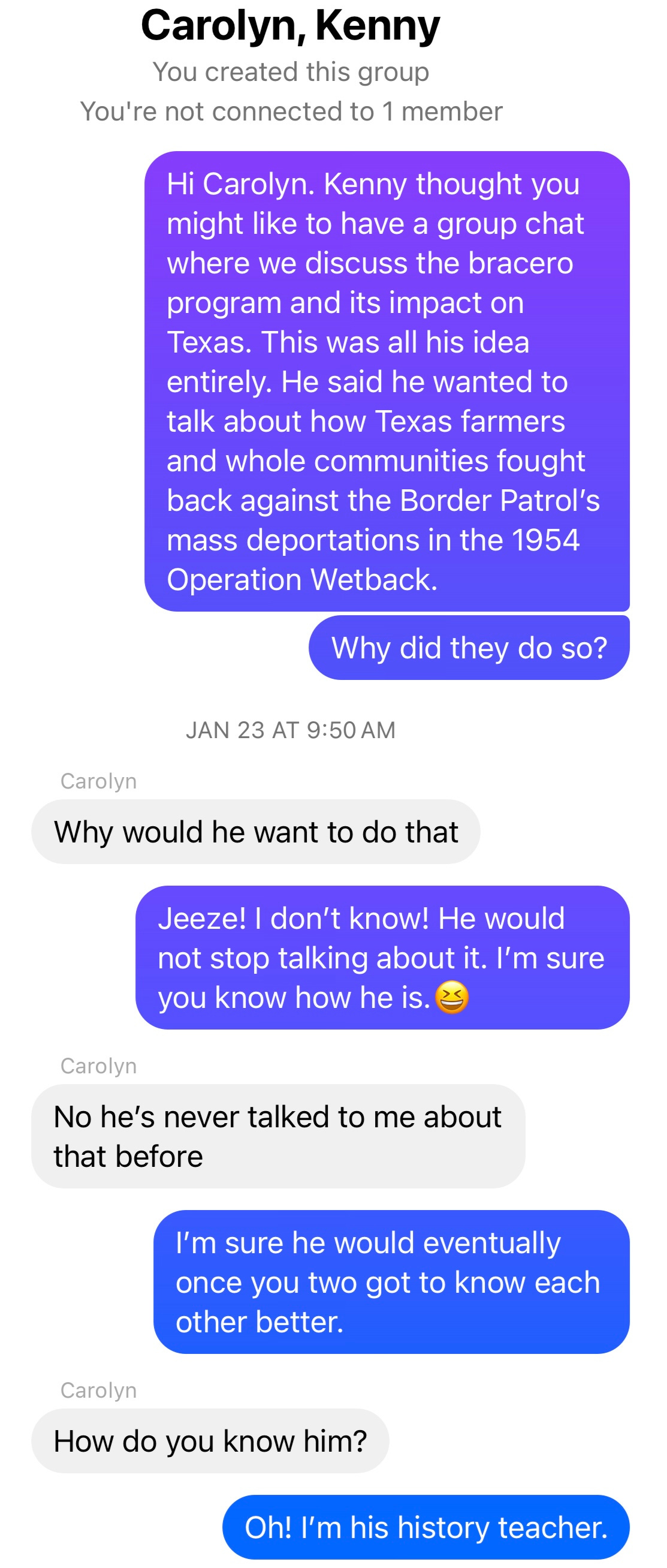
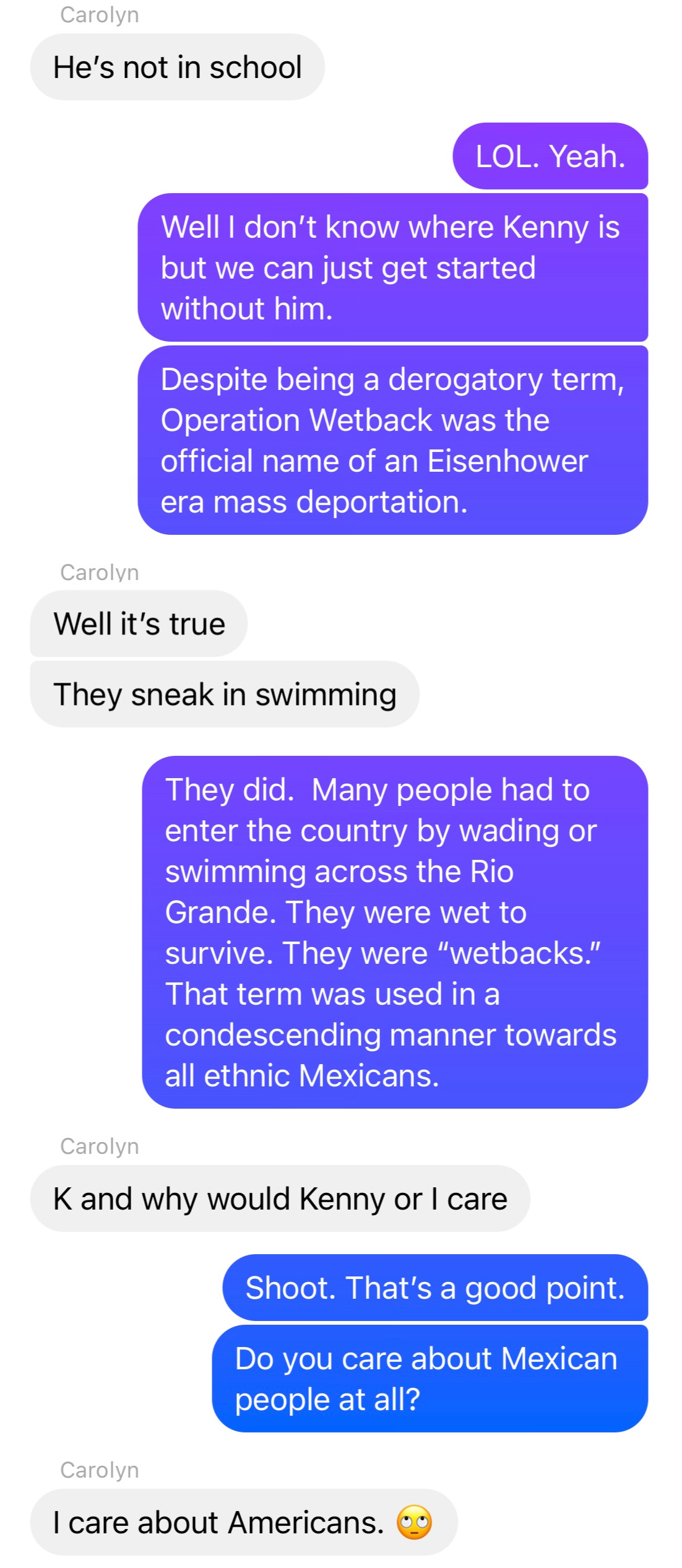
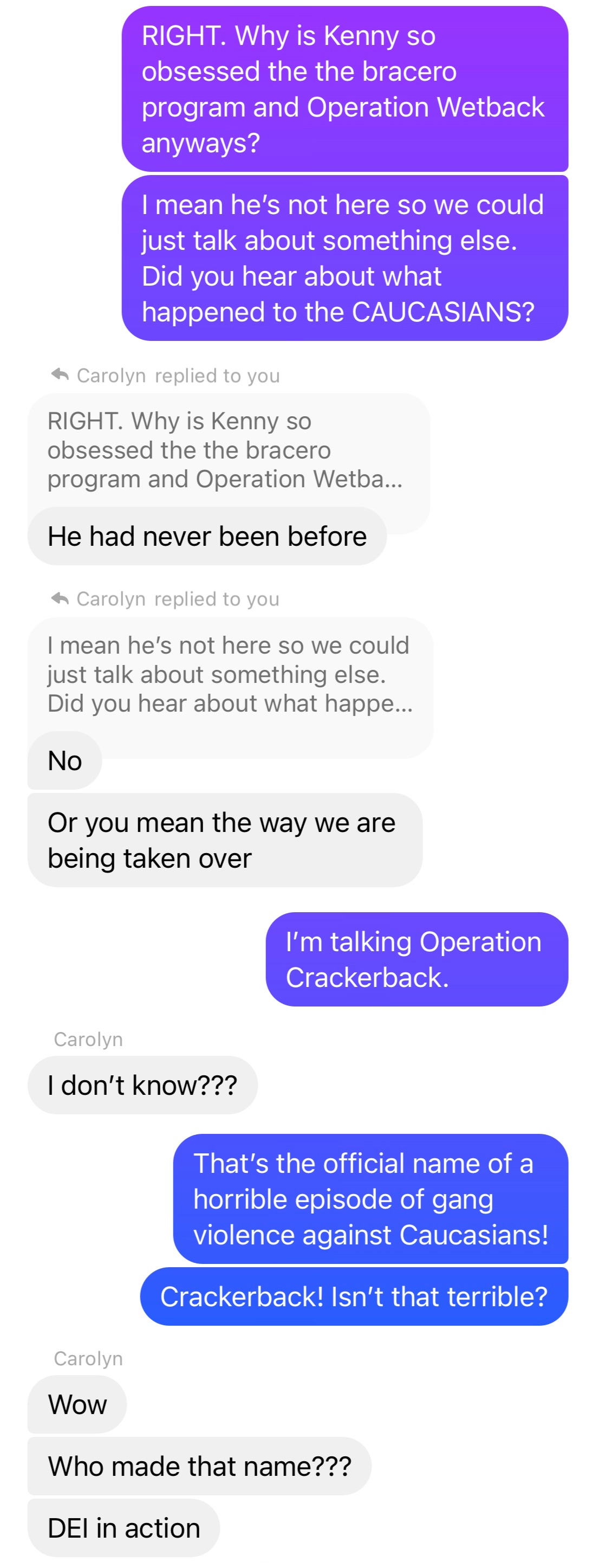
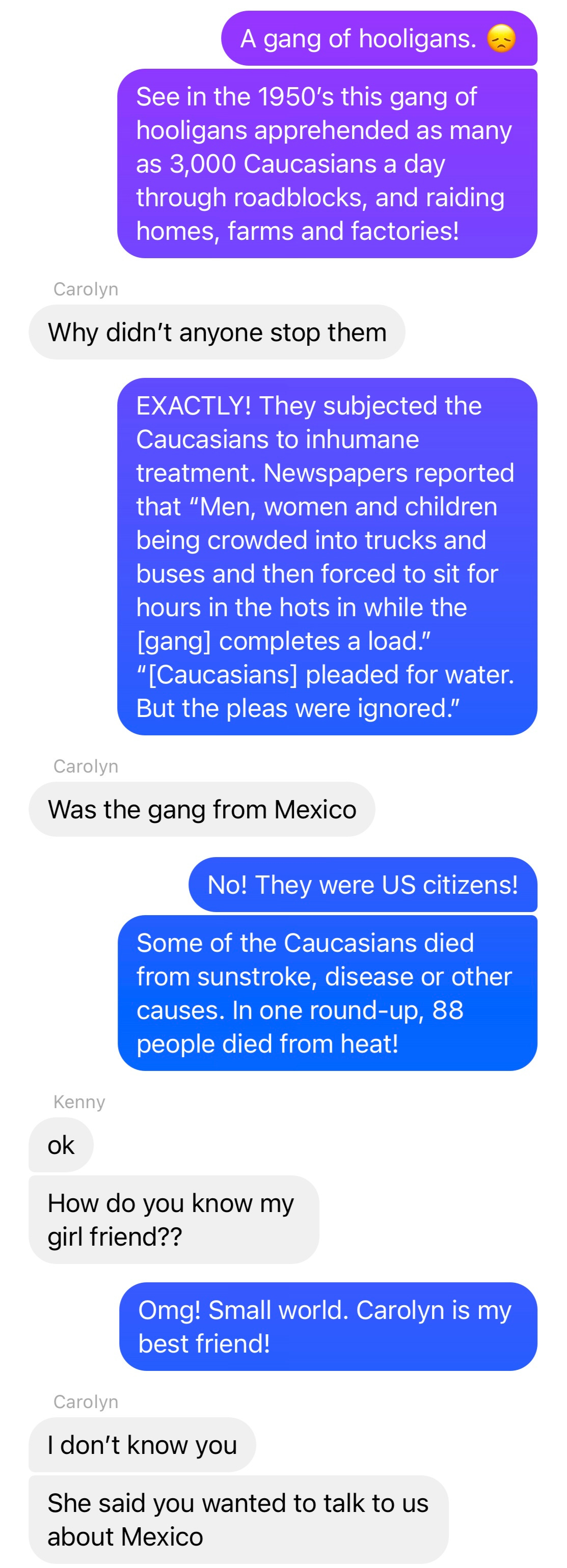
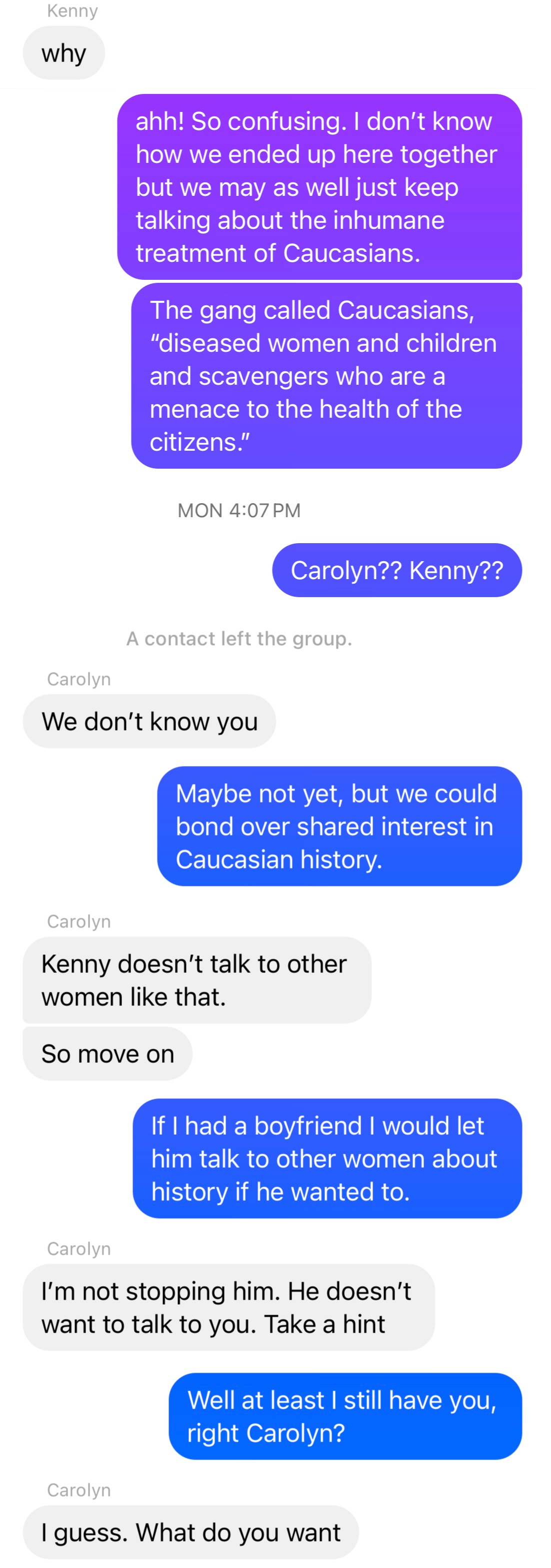
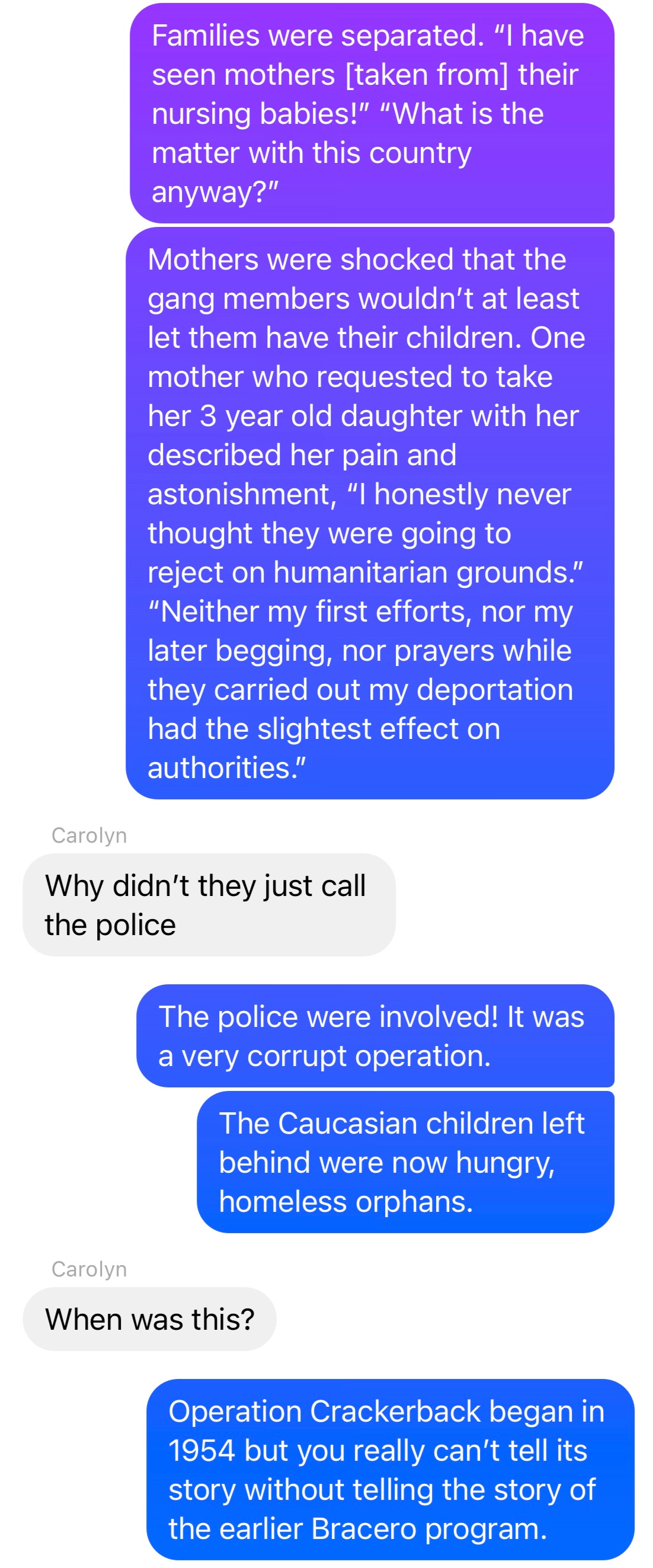

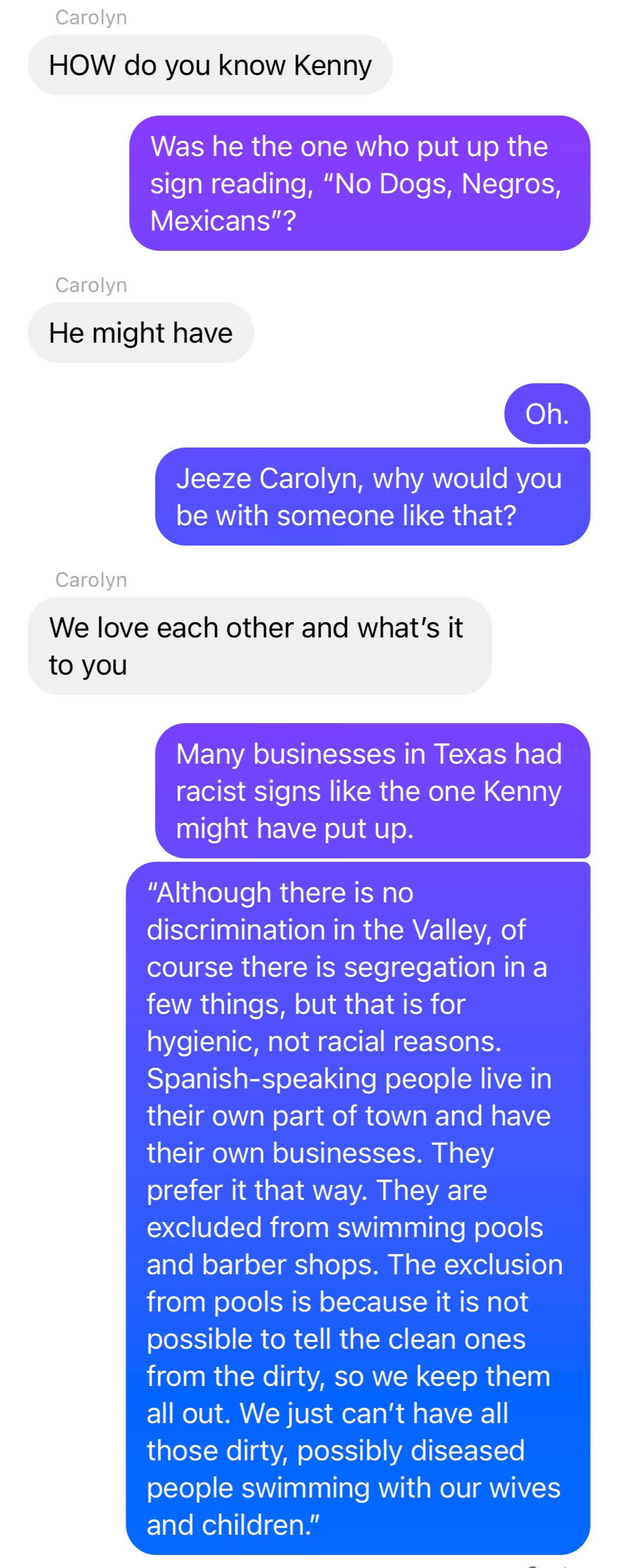

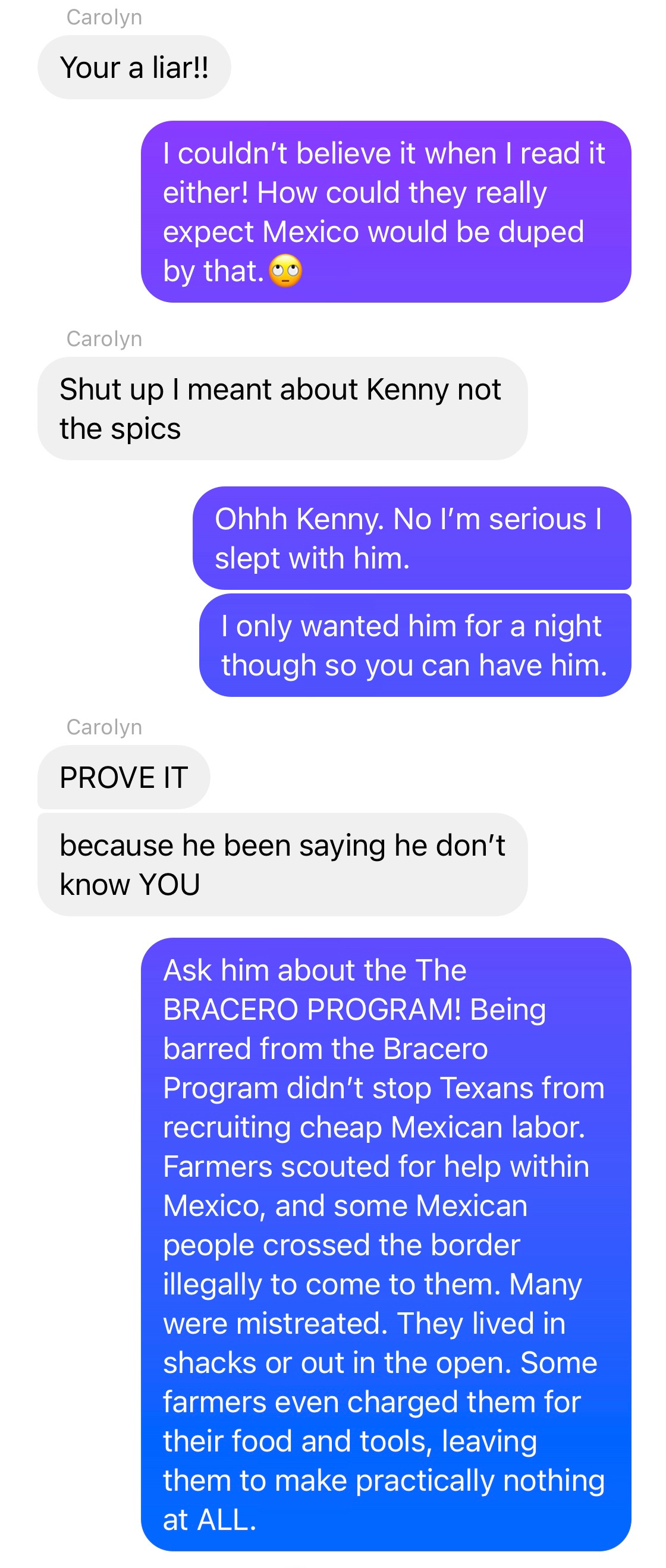
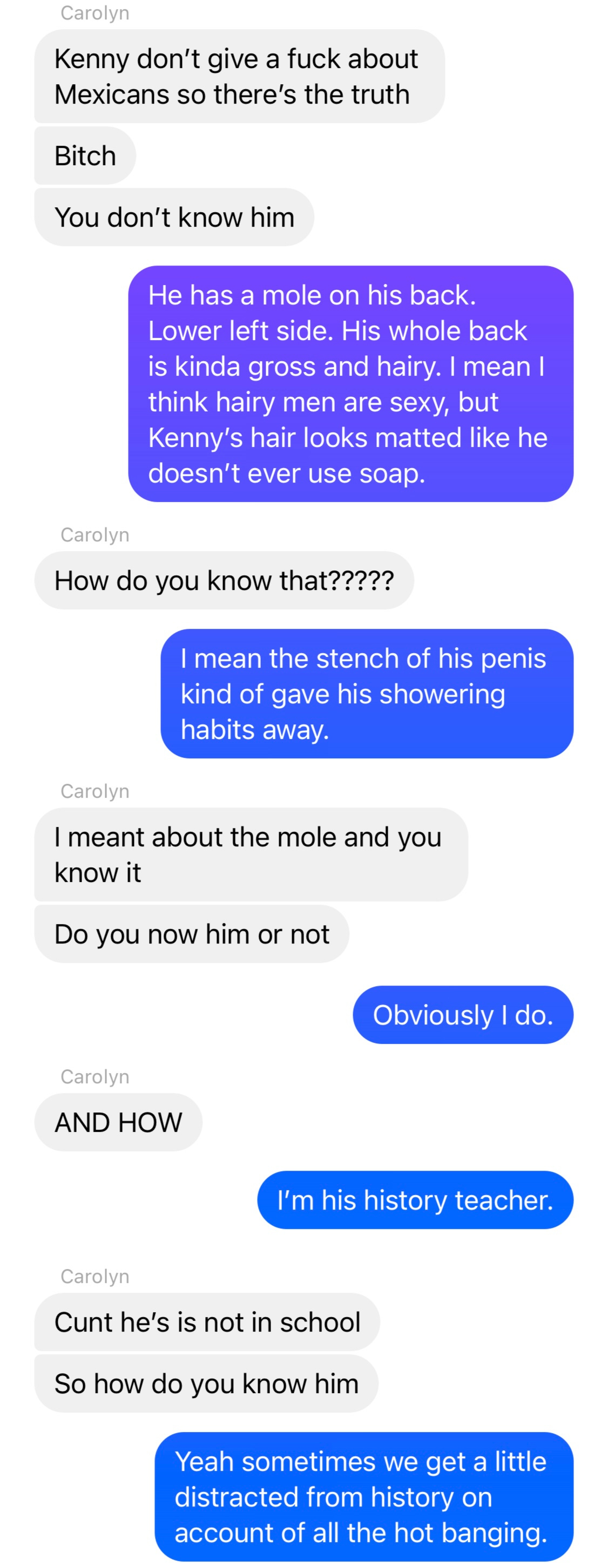
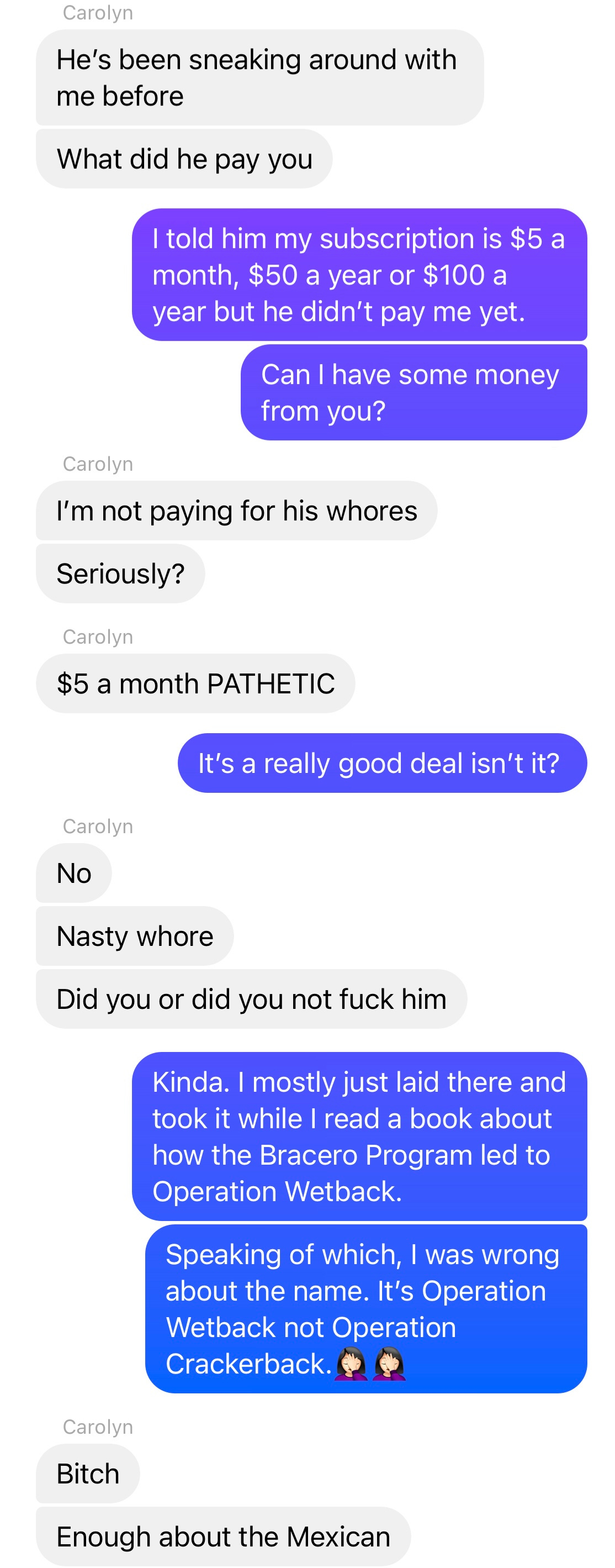
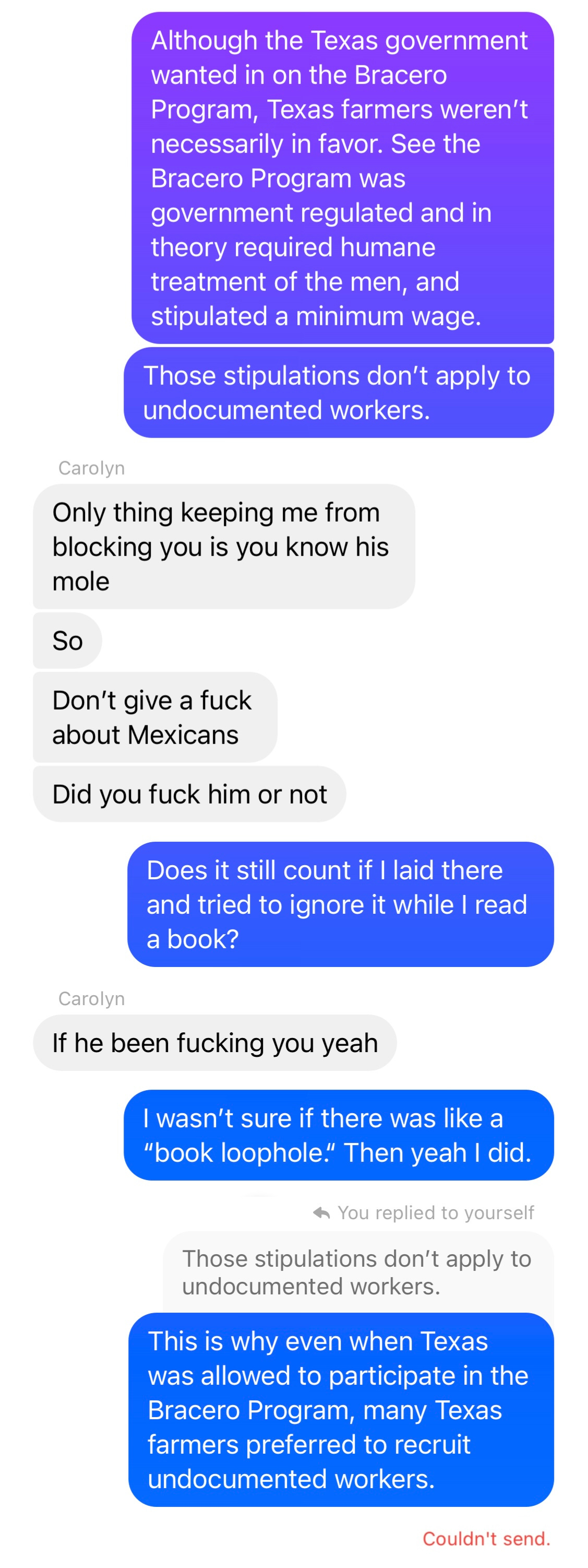
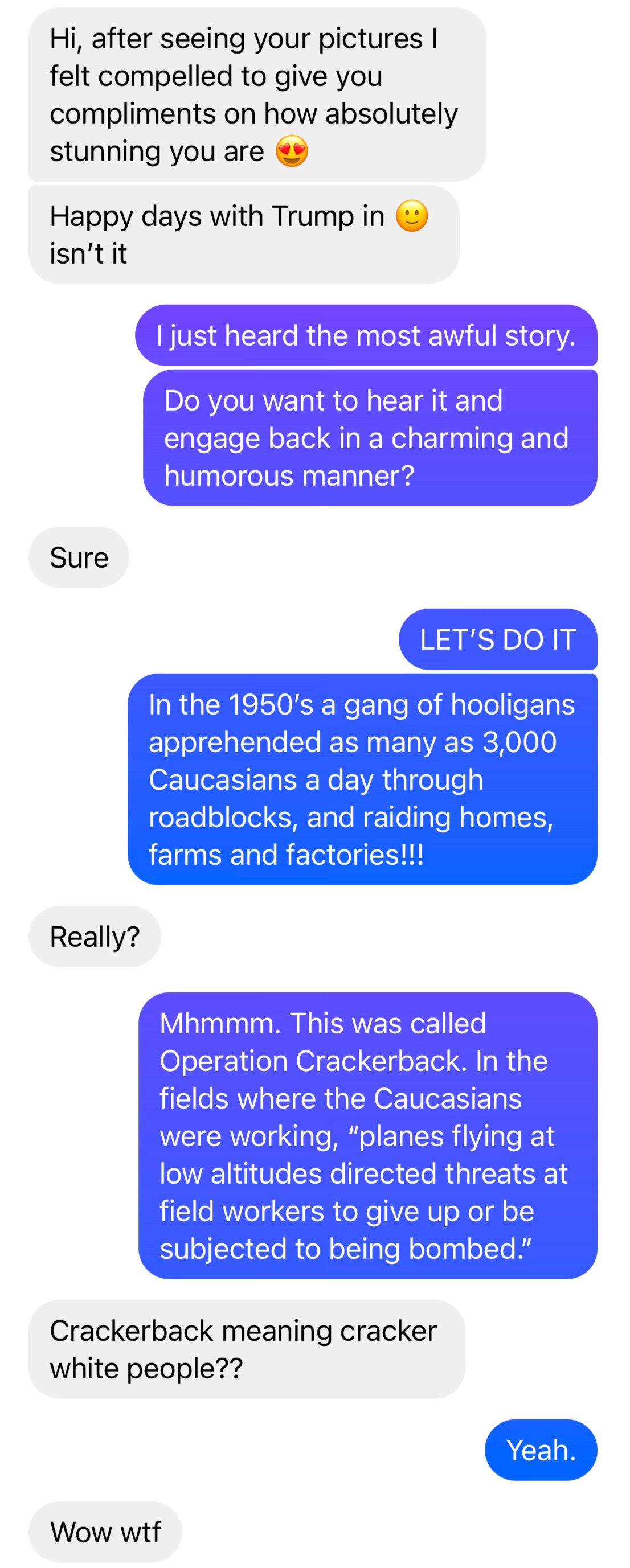
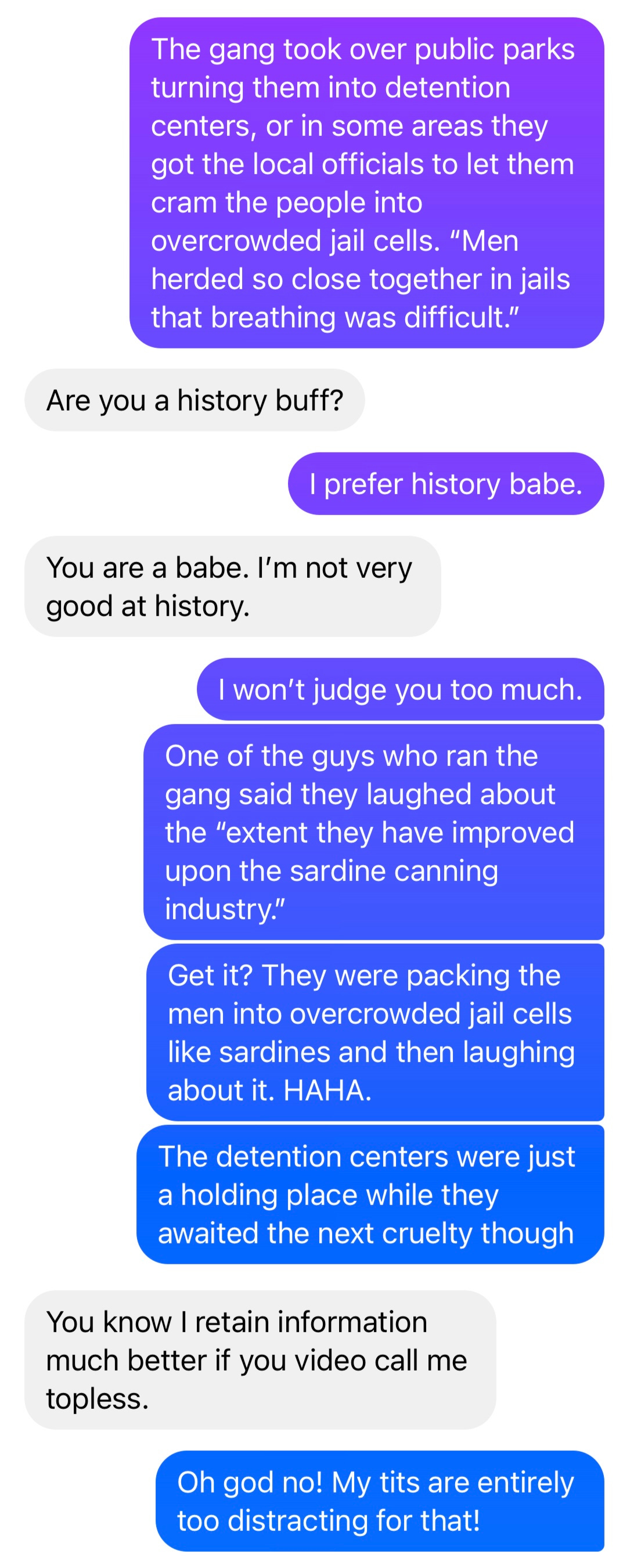
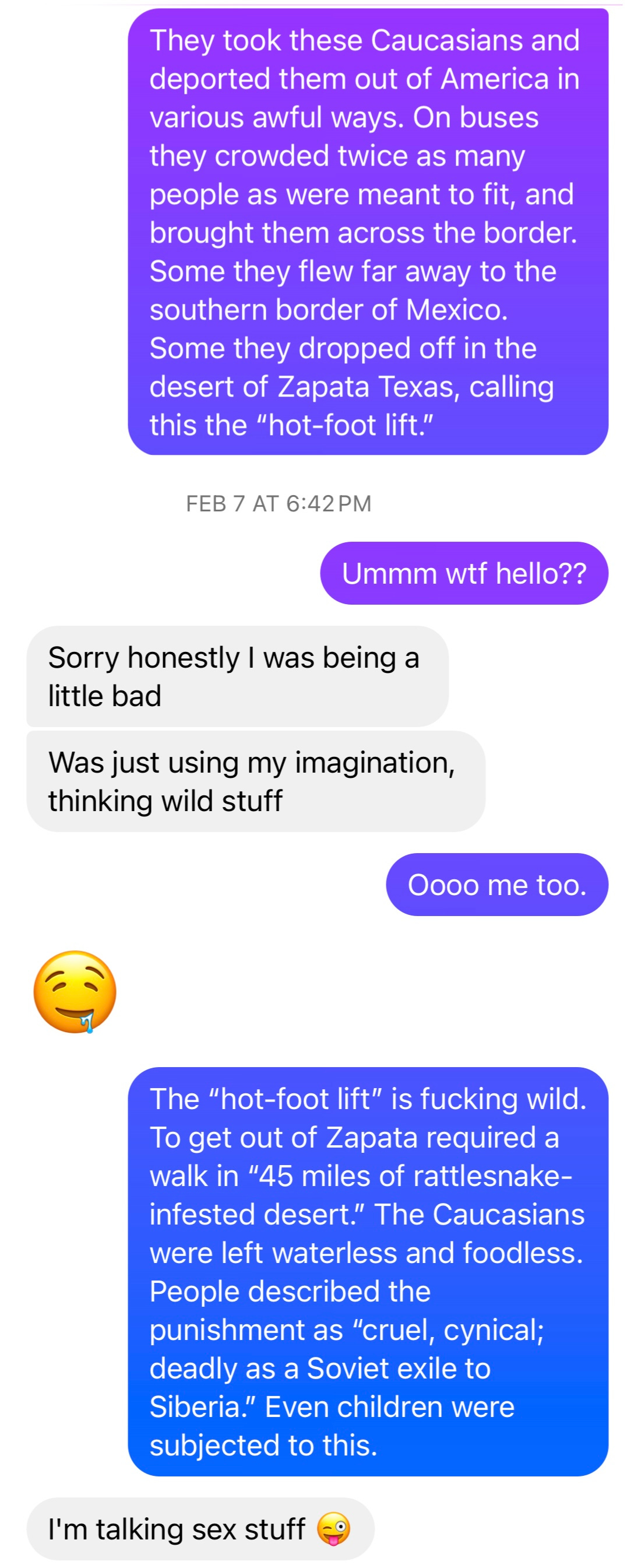
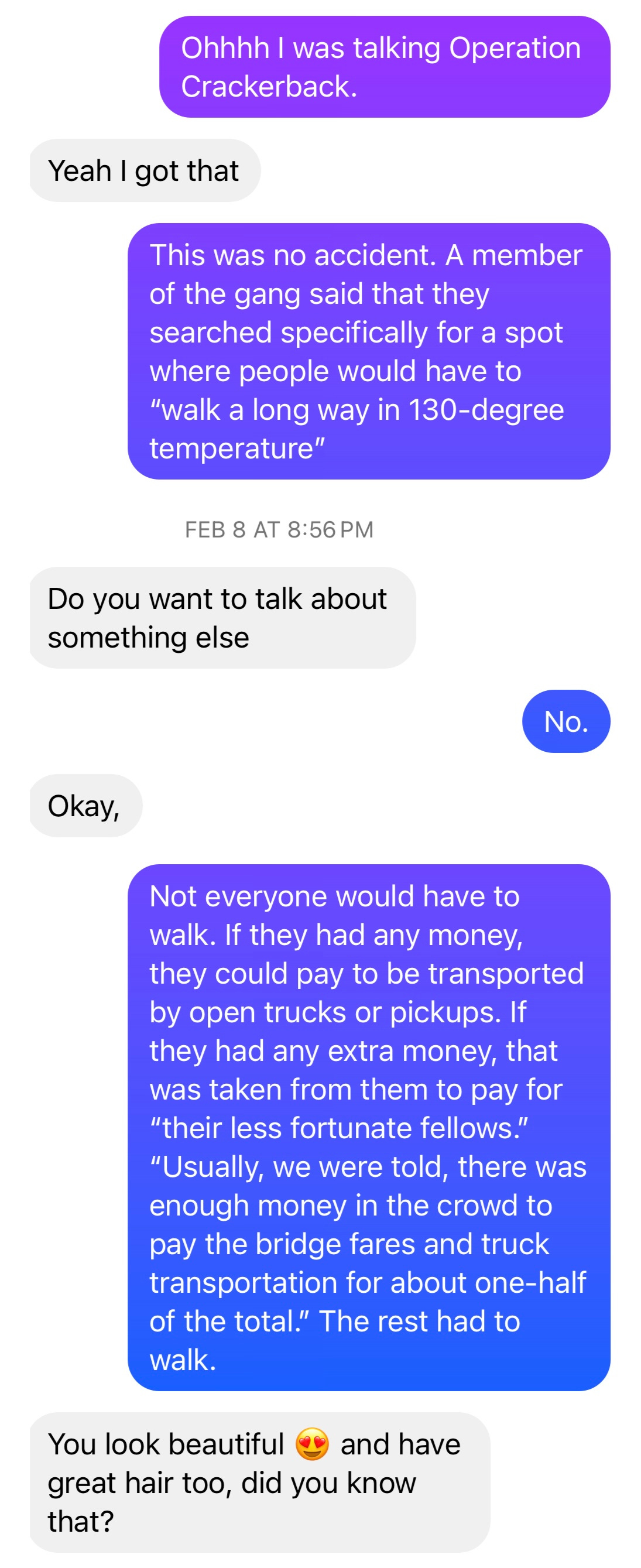

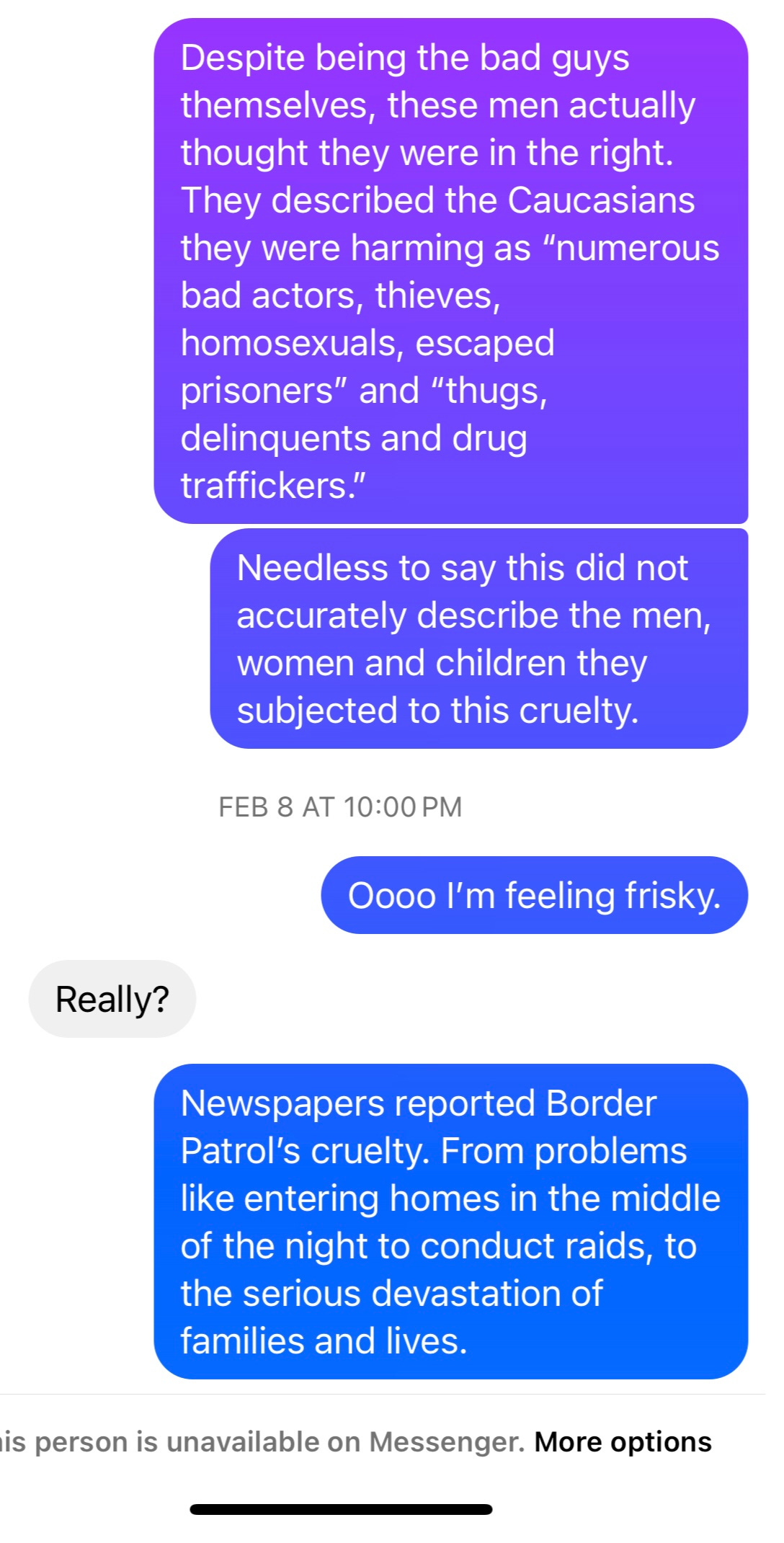
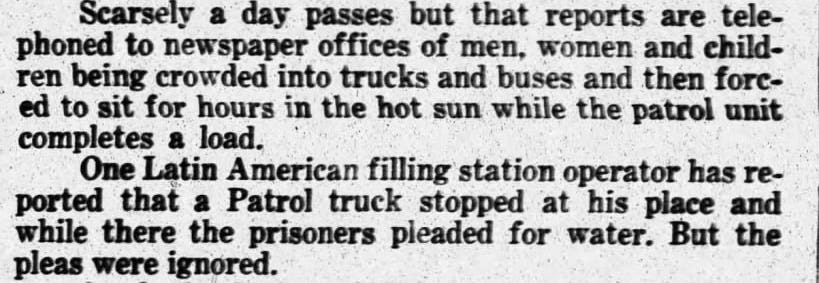
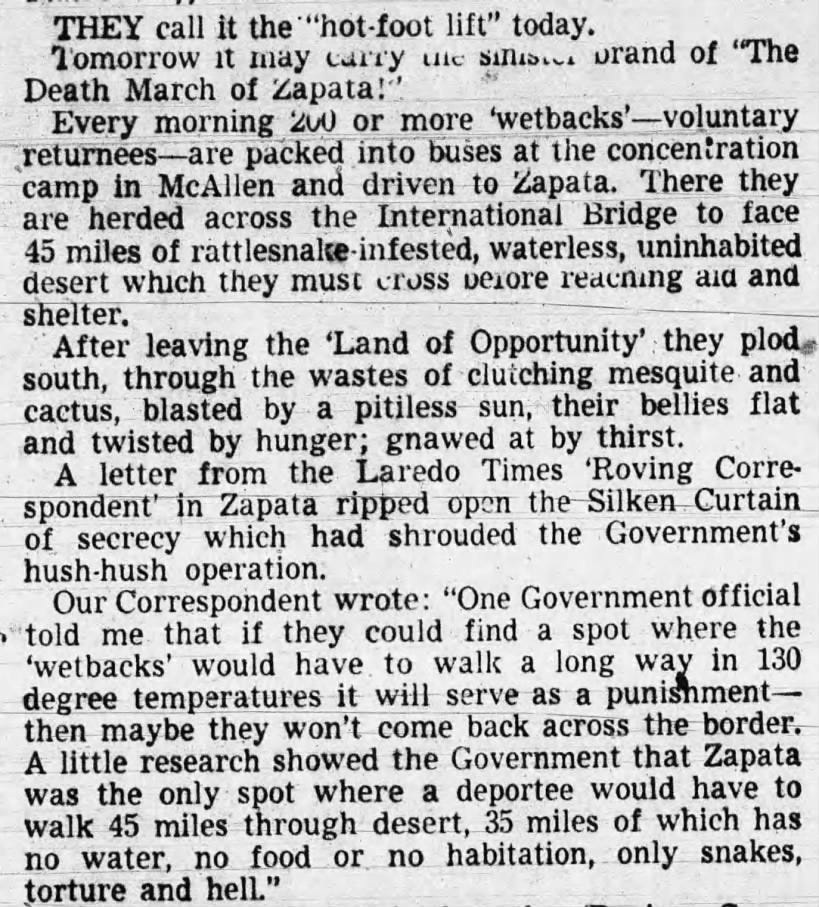

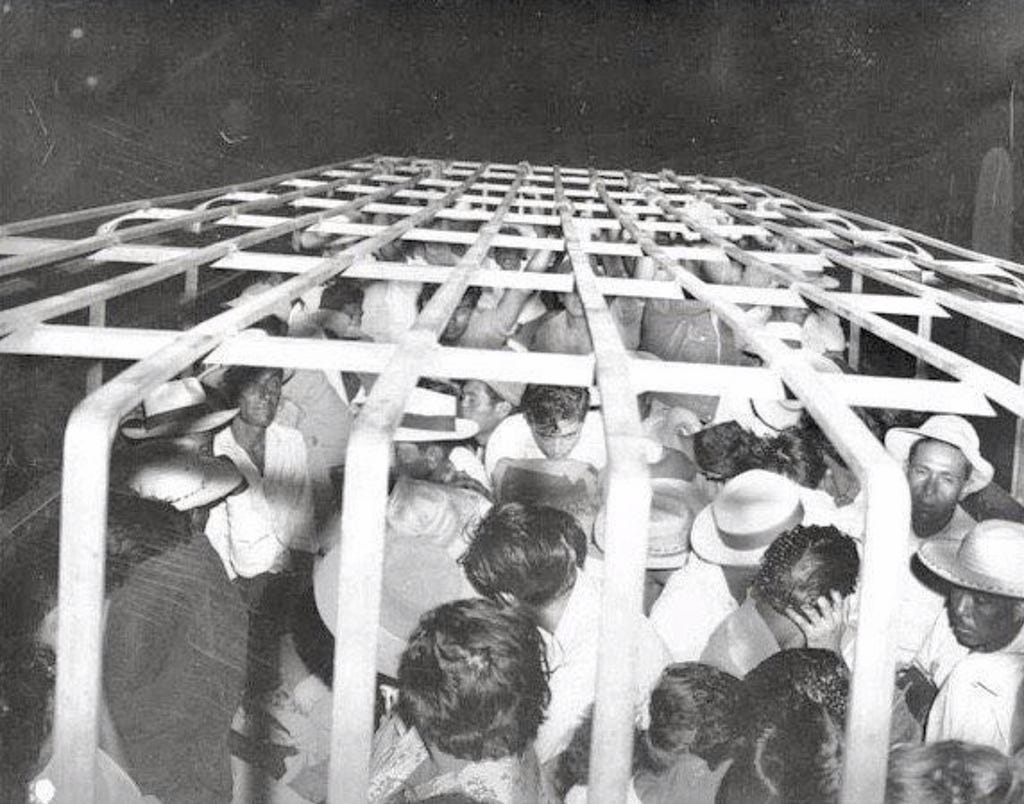

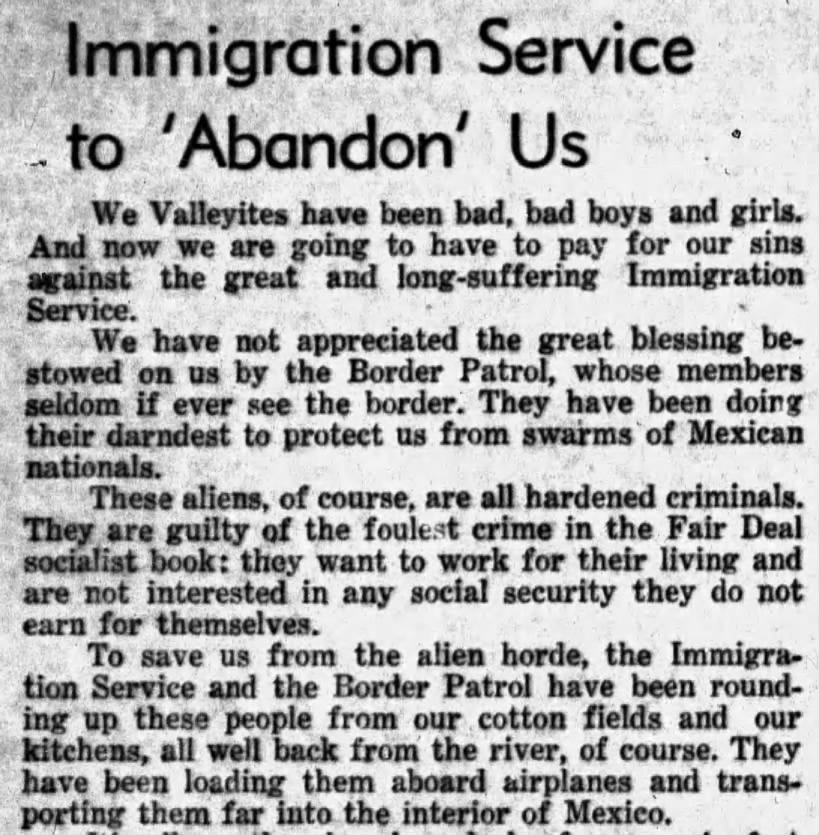
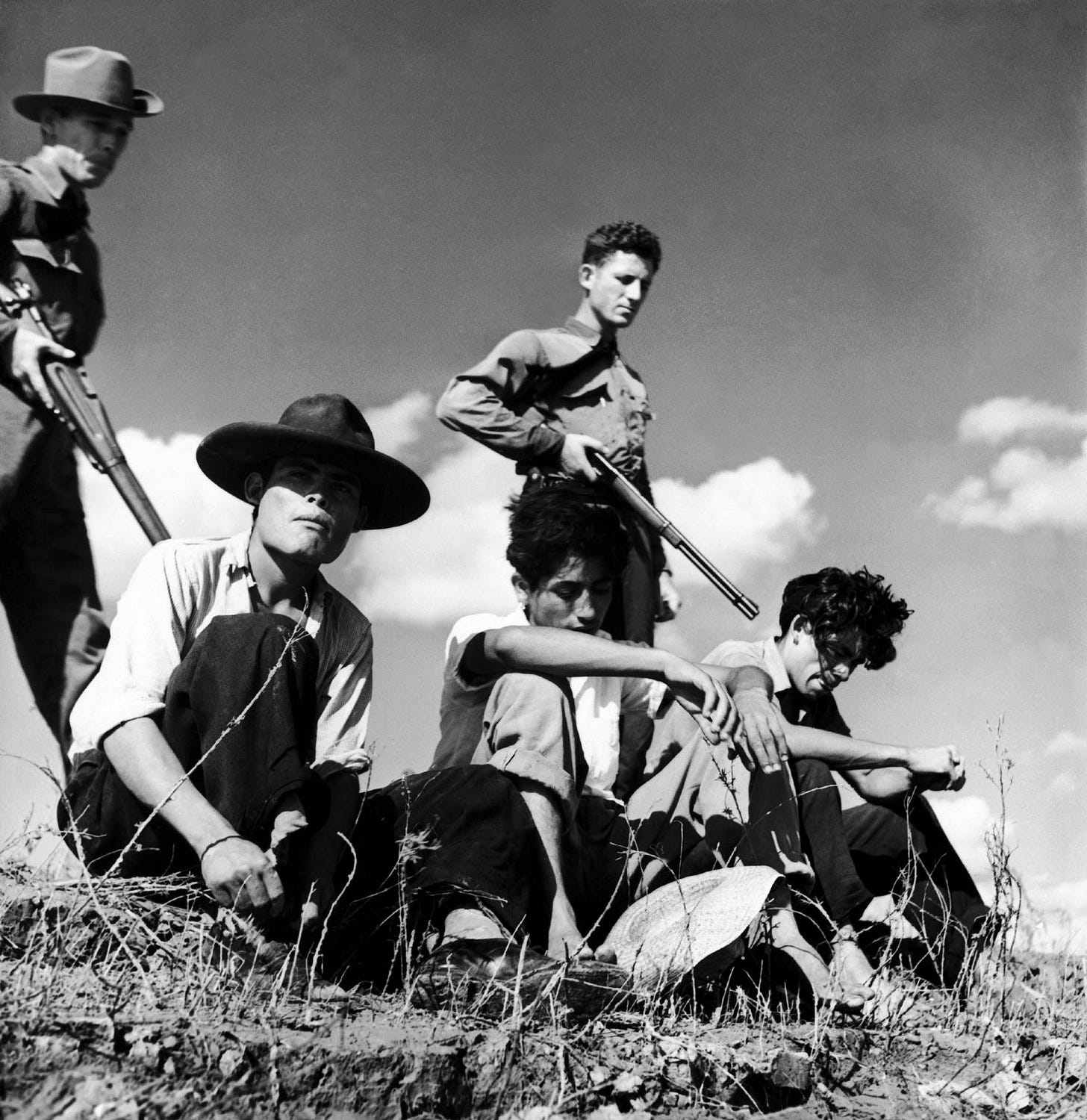
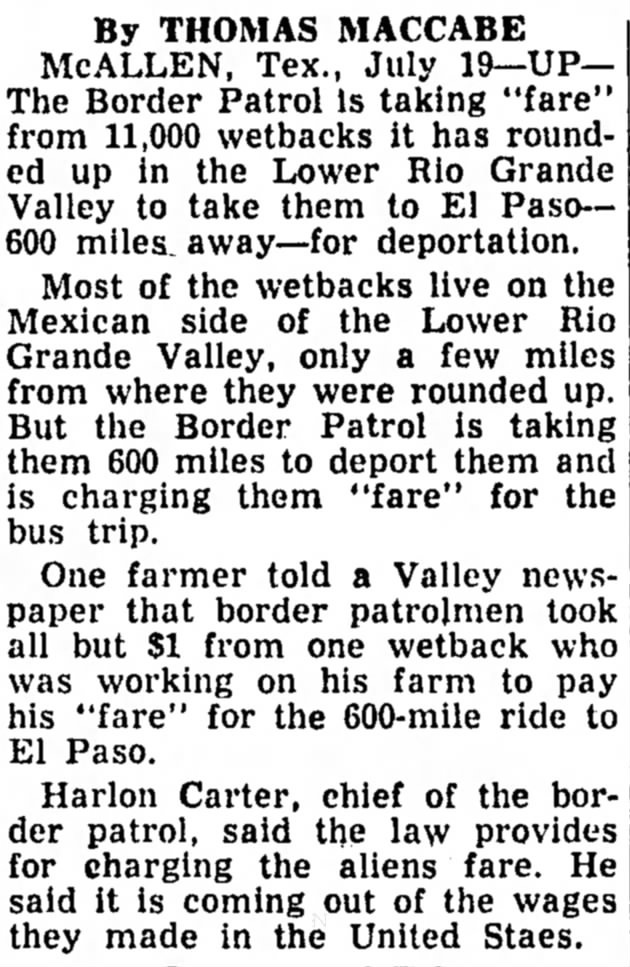




I love you. I cry laughed (and then later in the piece just cried)
It made me want to travel to the border armed with water bottles, damn.